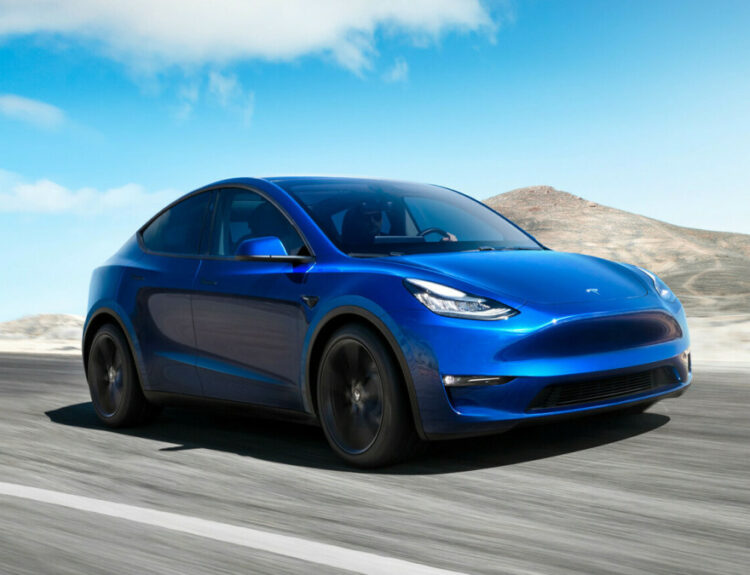
The Increasing Tide of Automotive Recalls: A Comprehensive Overview
In the ever-evolving landscape of the automotive industry, vehicle recalls are becoming a more frequent occurrence, particularly as technological advancements lead to greater complexity in vehicle systems. According to the National Highway Traffic Safety Administration (NHTSA), the ten most notable automakers collectively recalled over 25 million vehicles in recent years.
Leading the charge in recalls is Tesla, with a staggering 5,135,991 vehicles impacted across just 15 separate bulletins. In sharp contrast, Stellantis recalled 4,804,285 vehicles but issued a remarkable 72 recall announcements. This disparity raises an intriguing question: is it worse for a manufacturer to have a few significant issues affecting a vast number of cars, or numerous minor issues impacting fewer vehicles? The answer may vary depending on one’s perspective.
Volkswagen: Keeping Recalls Manageable
Volkswagen Group – 1,088,407 vehicles, 18 recalls
Volkswagen performed relatively well in comparison to some competitors, with its largest recall on June 20 affecting 271,330 units of the 2021-2024 Atlas and 2020-2024 Atlas Cross Sport SUVs due to critical issues with front passenger airbags. The second biggest recall involved 261,257 cars, spanning various Audi A3, Jetta, and Golf models from 2015 to 2020, relating to faulty fuel system components that could potentially lead to fires.
Hyundai: Navigating Multiple Issues
Hyundai – 1,109,978 vehicles, 25 recalls
Hyundai’s most significant recall occurred on November 21, impacting 226,118 Elantras and Santa Fes with malfunctioning rearview cameras. It was followed closely by recalls for 186,588 Elantras with defective trunk latches, and an additional 145,642 models, including the IONIQ series and Genesis vehicles, with issues in their Integrated Charging Control Units (ICCU).
Toyota: Facing Challenges Head-On
Toyota – 1,221,666 vehicles, 16 recalls
Toyota dealt with notable challenges this year, including the recall of over 100,000 Tundra and Lexus LX models due to engine faults, as well as 381,199 Tacoma trucks produced between 2022 and 2023 for potential rear axle issues.
Kia: Significant Recall Figures
Kia – 1,234,611 vehicles, 20 recalls
Kia’s recall numbers exceeded those of its corporate sibling, Hyundai. A startling 462,869 exemplars of the 2020-2024 Telluride were recalled due to risks associated with power seat mechanisms that could overheat, and further issues involving components that might prevent the vehicle from remaining stationary in Park mode.
BMW: Ironic Safety Concerns
BMW – 1,832,968 vehicles, 36 recalls
Despite its premium positioning, BMW faced significant recalls, including 720,796 models with improperly sealed water pump connectors, which posed fire risks. Additionally, 394,029 units of the 3-Series from 2006 to 2011 were recalled for safety concerns regarding airbag deployability.
General Motors: A Mixed Picture
General Motors – 1,872,567 vehicles, 34 recalls
GM, with its diverse lineup, reported widespread recalls, especially concerning Chevrolet Silverado and GMC Sierra trucks, which implicated 701,665 vehicles due to tailgates that could unlatch unexpectedly.
Honda: High Numbers, Serious Issues
Honda – 3,794,113 vehicles, 18 recalls
Honda’s recalls involved an extensive number of vehicles, notably including 1,693,199 Civics, Integras, and CR-Vs, flagged for steering gearbox defects. Other major concerns involved potential airbag failures and fuel pump issues in various models.
Ford: Improvement Over Time
Ford – 4,777,161 vehicles, 67 recalls
Once deemed the industry leader in vehicle recalls, Ford managed to reduce the number of affected vehicles to just under 5 million this year. Key recalls included potential problems with A-pillar trim in 2011-2019 Explorers and transmission issues in 2014 F-150s.
Stellantis: The Recall Champion
Stellantis – 4,804,285 vehicles, 72 recalls
Stellantis emerged as the focal point for recalls, setting records for overall vehicle recalls. While a significant portion of these were for minor issues (including some involving an individual Ram truck), major recalls encompassed over 1 million models across several brands, addressing issues like rearview camera failures and software malfunctions.
Tesla: A Leader in Volume
Tesla – 5,135,991 vehicles, 15 recalls
Tesla may lead in total vehicles recalled, but the scope of issues varied considerably. Notable recalls included 2,193,869 units across multiple models for misleading instrumentation warning signs and potential failure to detect unlatched hoods. Moreover, the Cybertruck faced a series of recalls addressing various technical hiccups.
Reflecting on Recalls
The sheer volume of recalls underscores the importance of stringent safety standards in the automotive sector. It is a reminder that even seemingly trivial issues, like incorrect font sizes on warning panels, can escalate to warrant the recall of millions of vehicles. The NHTSA’s commitment to consumer safety remains unwavering.
For further insights, delve into topics such as vehicle trends, market shifts, and electric vehicle advancements.
Source:www.autoblog.com






